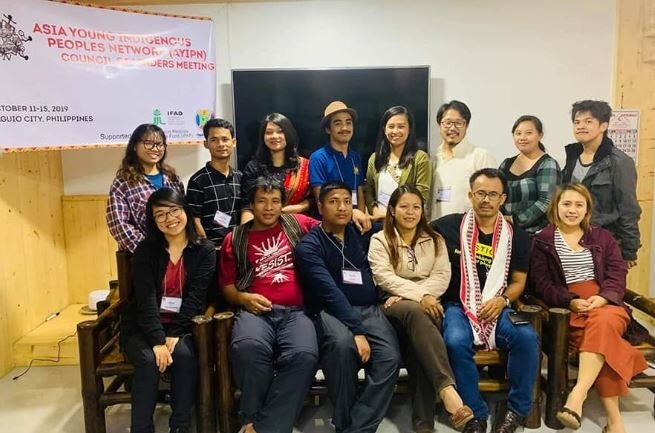Indigenous youth across Asia are heeding the call to assume the reins of leadership in their respective communities and countries. They are regarded as the next bearers of traditional knowledge and wisdom and are encouraged to hone their leadership skills and discover their potential in the vast array of their own cultures. Knowledge of their roots and identity as indigenous peoples is crucial if they are to lead in these changing times, where both progress and development threats are hard realities that run counter to their self-determination. They are an invaluable force in the continuing growth of the indigenous peoples’ movement, and their voices offer significant contribution where tradition and identity are asserted.
Indigenous youth and children are inheritors of rich culture and have a vital role in further promoting and protecting indigenous culture and rights. The continuous transmission of traditional knowledge is a manifestation of our asserted self-determination and collective rights.
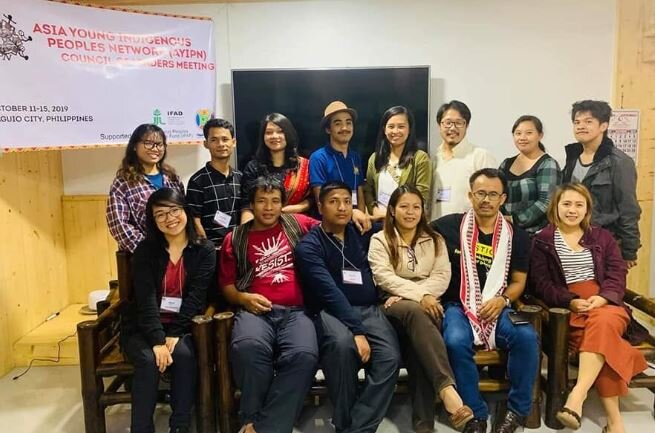
The Asia Young Indigenous Peoples Network (AYIPN), which supports indigenous youth organizations towards this goal, is well aware of the requirements and preparations for leadership and perpetuation of indigenous culture. In coordination with member youth organizations, trainings and capacity-building activities were launched in three countries: Bangladesh, the Philippines, and Taiwan. Young indigenous women and men were identified to participate in a series of training workshops on documentation and advocacy relating to traditional knowledge and institutional strengthening.
In the Philippines, AYIPN’s Training and Workshop on Advocacy, Traditional Knowledge, and Other Issues Facing Indigenous Youth was implemented in the Cordillera region by the Dap-ayan ti Kultura iti Kordilyera (DKK Cultural Alliance). The event sought to equip future leaders with basic skills and protocols for conducting research in their respective communities. Resource speakers from the Cordillera Peoples Alliance (CPA) and Task Force for Indigenous Peoples (TFIP) discussed issues facing communities (including mining and energy projects and militarization) that have profound and lasting negative effects on their ancestral domain. The importance of indigenous knowledge systems (IKS) nurtured by ancestors and handed from one generation to the next was emphasized, and the persistence and disintegration of these systems were discussed. At this time of economic, environmental, and cultural crisis, the value of IKS must be documented to identify ways to strengthen, innovate, and adapt to today’s needs.
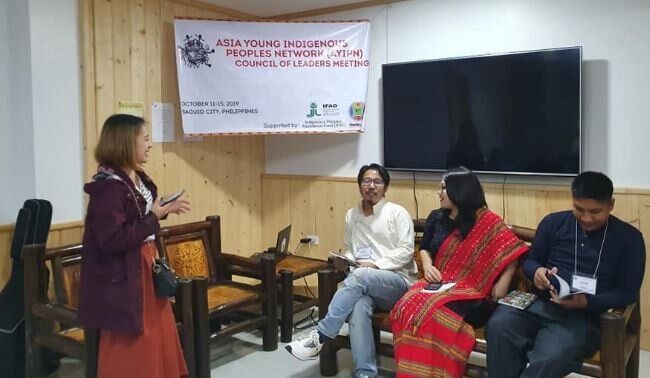
Though most participants had a basic background in research methods, they were taught the components of a research proposal and effective research methodologies specifically among indigenous communities. The guiding principle that the participants took away was the importance of capturing the voices of the people during research. Feminist Participatory Action Research was likewise shared to document the issues, voices, and concerns of indigenous women and youth. Another tool option involves the performing arts, for example, understanding how the performance of indigenous dances that evoke different perspectives among youth and elders.
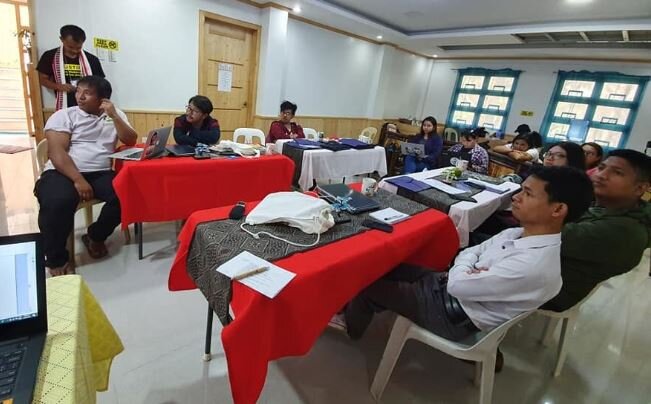
A representative from the National Commission on Indigenous Peoples (NCIP) provided a brief discussion on Free Prior and Informed Consent (FPIC) as it relates to the documentation of indigenous knowledge. The process ensures that target research participants are fully consulted so that they can share ownership of research outputs.
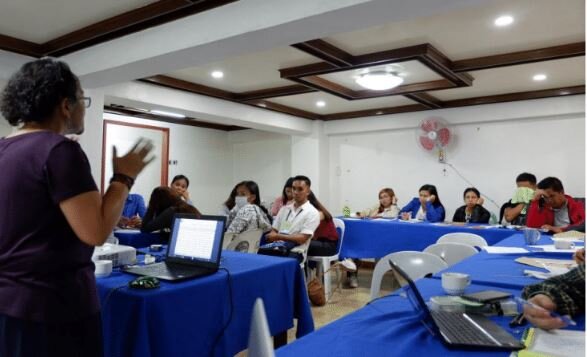
Students and young development workers were enlightened about the critical role of research in their daily tasks as leaders, organizers, and campaigners for indigenous peoples’ rights. The knowledge and skills learned during the training helped participants to document existing and disappearing traditional arts and culture in their communities and province. The output will be translated into popular forms, such as songs, scripts for plays, and a video documentary. The activity provided a venue for both academic and non-academic participants to come together, learn, and share experiences in the course of research.
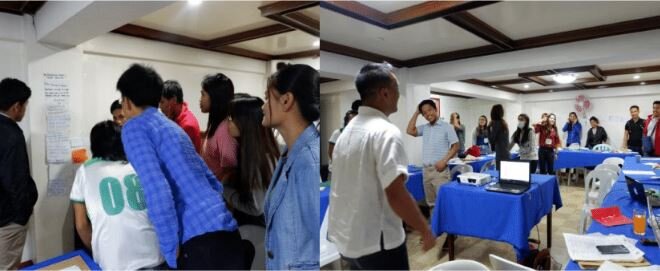
In Bangladesh, the CHT Youth Headman-Karbari Network, AYIPN, and Kapaeeng Foundation launched a series of trainings and workshops to empower and strengthen indigenous youth work on communications and networking, cultural exchanges, lobbying, and advocacy for human and land rights, Sustainable Development Goals, and the overall promotion of indigenous peoples’ rights. Youth awareness of indigenous values, traditional knowledge, and customary governance system was enhanced.
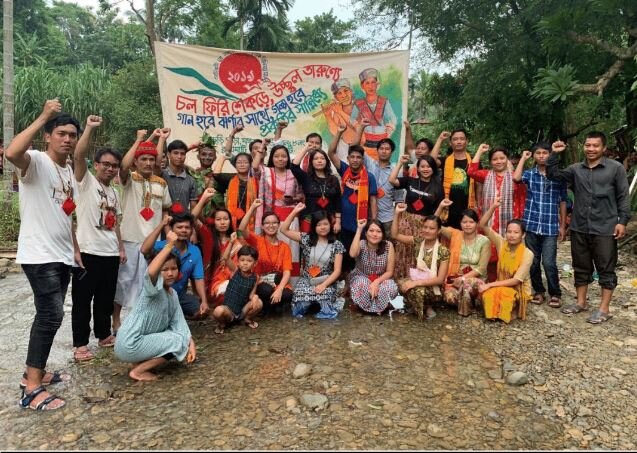
The event was an opportunity to bridge the gap among indigenous youth from different communities with elders and to strengthen their network to protect traditional knowledge and customary practices. Invited resource persons shared about the land and culture as inviolable aspects of indigenous peoples’ lives. Youth responsibility for building, developing, promoting, and asserting their roots to establish their rights was underscored. The cultural exchange revitalized indigenous youth campaigning to protect their land, learn land management, observe their traditional practices, and respect indigenous norms and values.
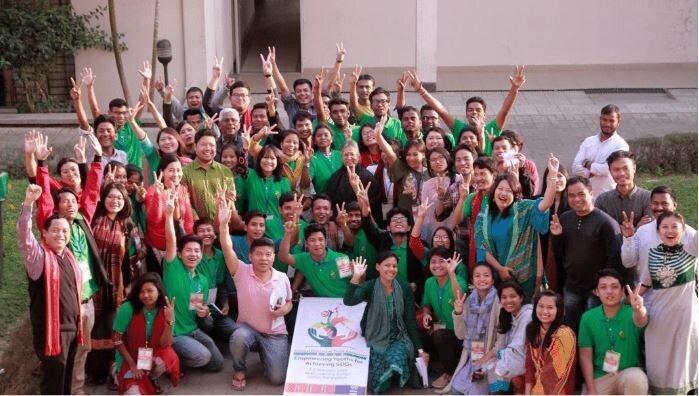
Activities included exercises to hone meaningful and strong advocacy tactics, such as simulated TV talk shows and campaign activities at the grassroots, national, regional, international, and global levels. Participant cultural performances and exhibitions of poetry, drama and dance, mime, and performing arts illustrated their traditional knowledge, cultural skills, and creative experience. Training in video production and editing built participant capacity to document traditional knowledge and customary practices among indigenous peoples. The participants visited nearby places to gain hands-on experience and learned how to make videos and edit footage independently.
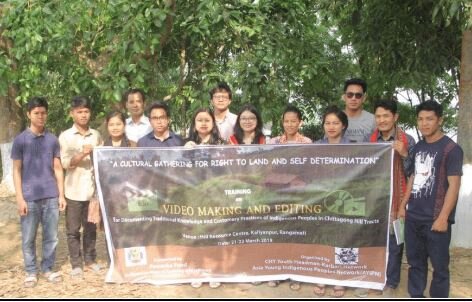
A cultural exchange visit to Rangamati Hill District capped the trainings. There, indigenous leaders encouraged participants to become well-versed in indigenous and customary laws and to join the national indigenous movement to protect traditional knowledge and culture. An Art Camp in the village illustrated indigenous peoples’ lives and struggle for their rights. Villagers and participants shared their experiences about the role of traditional knowledge in community forest management, their livelihoods, and struggles.
In Taiwan, the Youth Advocacy Training and Workshop on Indigenous Traditional Knowledge was conducted jointly by the Taiwan Ping-pu Indigenous Groups Youth Alliance, Papora Indigenous Youth Council, Central Taiwan Ping-pu Indigenous Alliance, Taokas Indigenous Youth Council, Taiwan Aboriginal Rights Association-Pingpu, and Thao Culture Development Association.
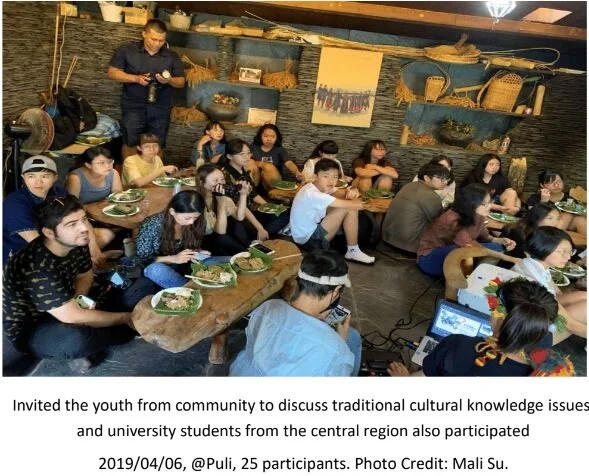
Advocacy activities invited community elders and experts to discuss and advise about organizing workshops and transmitting and preserving traditional knowledge. Additional workshops targeting youth taught traditional knowledge on floating farms, an endangered traditional production system known only by a few remaining elders. The indigenous traditional floating farm is a symbiotic tool for farming, fishing, and hunting in the Sun Moon Lake area in central Taiwan. This transmission of knowledge and skills was recorded and documented.
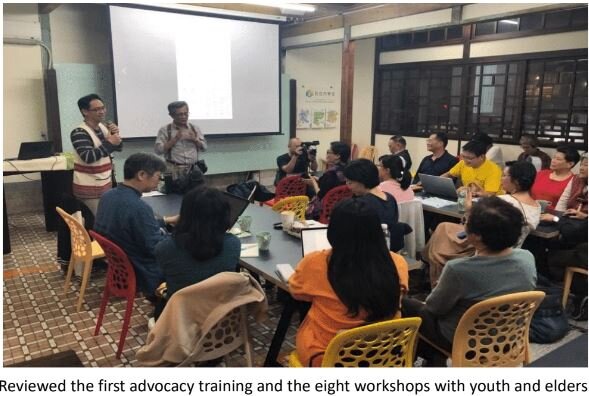
Two community integration workshops shared experiences of traditional knowledge preservation in schools. Indigenous peoples’ traditional knowledge has been greatly affected by the changing times, highlighting the importance of video documentation and other documentation methods. In addition to preserving cultural records, youth also had the opportunity to use imagery to share and discuss ethnic culture. The Taiwan Ping-Pu Indigenous Groups Youth Alliance committed to prepare a video recording of traditional knowledge and assist communities in its distribution.
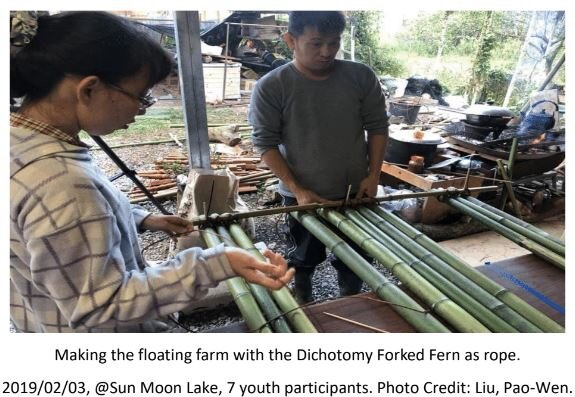
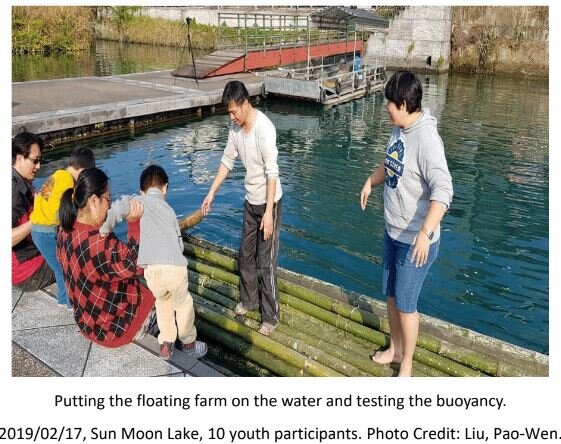
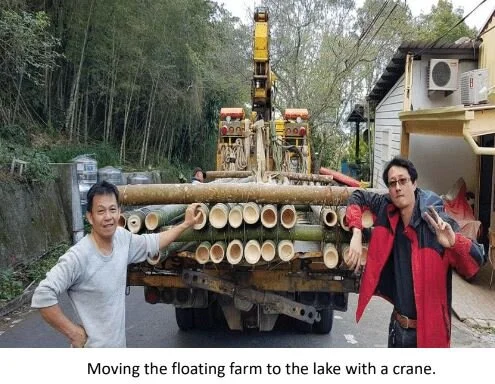
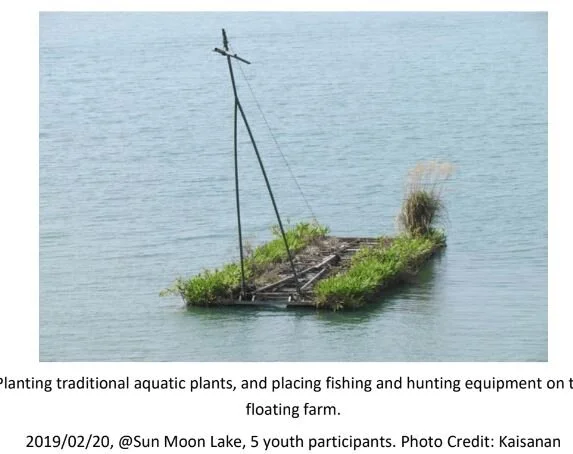
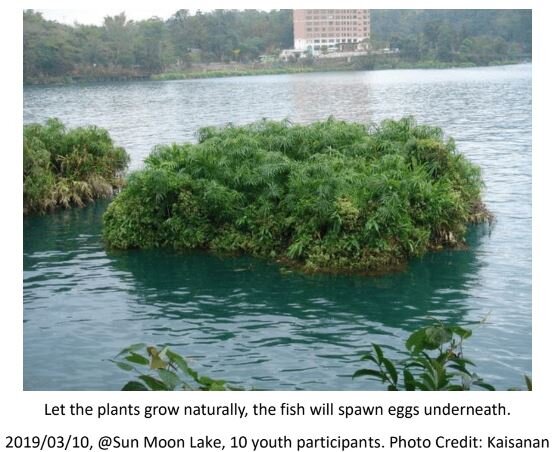
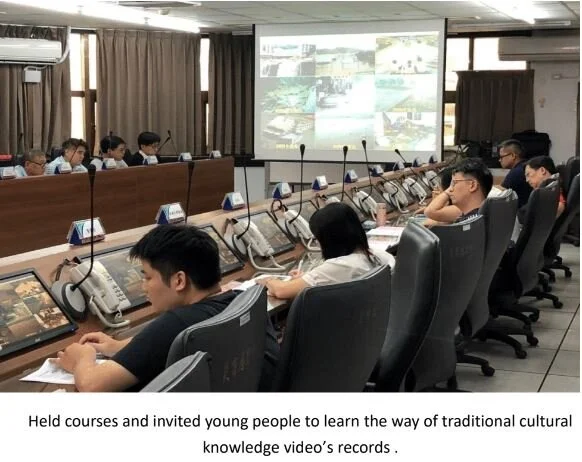
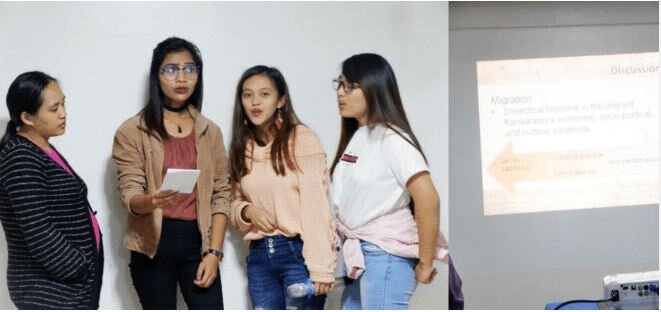
(The Asia Young Indigenous Peoples Network (AYIPN) implemented the “Cultural Gathering for Right to Land and Self-Determination” project in the Philippines, Bangladesh, and Taiwan in 2019 with the support of PAWANKA Fund.)

